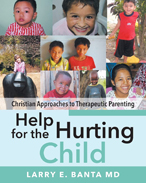
 |
Well researched and comprehensive, Banta’s work is a fusion of his experiences and deeper probings as they pertain to paving a healthy and functional pathway for children who have been displaced from their original families for one reason or another. What gives the author’s work even greater credence and legitimacy is the firsthand accounts and interactions he has had with those working directly with the children, from foster parents to orphanages. Piecing together the three core topics of psychology, psychiatry, and religion, the work is a bona fide guide toward providing a holistic and therapeutic game plan to develop the child.
More than anything else, the text focuses on helping authority figures—the stewards of our children’s future—avoid the constant disruptions in their developmental experience that have so tragically become a trademark of well-known adoptive placement systems like foster care. To this end, Banta does an exceptional job of helping educate the masses on acquiring an understanding of child development, both the necessity of it and the science behind it. In essence, his theory is that adults first must be committed to the process of child development with Christian approaches before the child can be expected to exhibit that same level of commitment to faith and the family system.
The author takes incredibly complex topics and finds a way to simplify them so even the layman can understand. In particular, explaining psychological concepts like extinction, withdrawals, and mental illness can be rife with confusing theories. However, he filters out the complexities using scripture and examples and leaves only the substance for the reader to digest. The holistic approach to development is predicated upon balancing all aspects of humanity, from spirituality and physical health to mental and emotional well-being. If any of these core categories are off-kilter, Banta suggests that chaos will ensue and open a path for Satan to enter and corrupt the mind.
Describing a series of systems throughout, Banta emphasizes that positive energy is a prerequisite to establishing healthy growth in a child. Conjure the image of a child who has grown in isolation. It becomes evident that an appropriate level of attachment is necessary, as is the importance of acknowledging that there will be a learning curve with the child. They simply won’t mesh seamlessly with an adult’s discipline style or even a style that inundates the child with love that often comes across as out of pity. Specifically, the author lays out remnants of a system that can establish and reinforce the attachment with a healing child. In particular, daily and cultural rituals are essential to overall progress.
Perhaps the most intriguing aspect of this roadmap is its ability to highlight development from the entire lifespan of a child from infancy. Undoubtedly, the portion on dreams, especially REM sleep, and understanding the fundamentals of behavior management are the cornerstones of conditioning and psychology as a whole. Conversely, it is not simply the behavior of the child that must be evaluated, but also that of the adult, who must be cognizant of every action and communication and how it could affect the healing child. Above all else, faith in Christ acts as the great equalizer, focusing on unconditional love and forgiveness regardless of the behaviors and the potential shortcomings from the scientific front. Collectively, however, the author’s strength lies in the thoroughness of his work and in his ability to weave together science and religion for the betterment of the child.
RECOMMENDED by the US Review